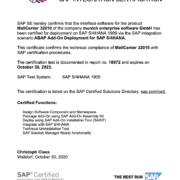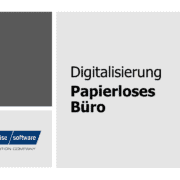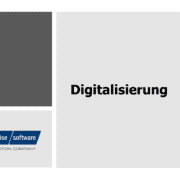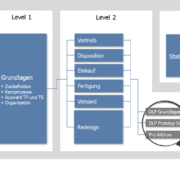Digitization
Digitisation as an opportunity
The digital revolution is covering all areas of life. Especially in the economic field, this change is both an opportunity and a challenge. Digital transformation brings a number of benefits for any forward-thinking company.
In order to realize these advantages, a well-thought-out digitalization strategy is important. According to Bitkom, 96 percent of all German companies see digitalization as an opportunity – almost all of them.
Table of Contents
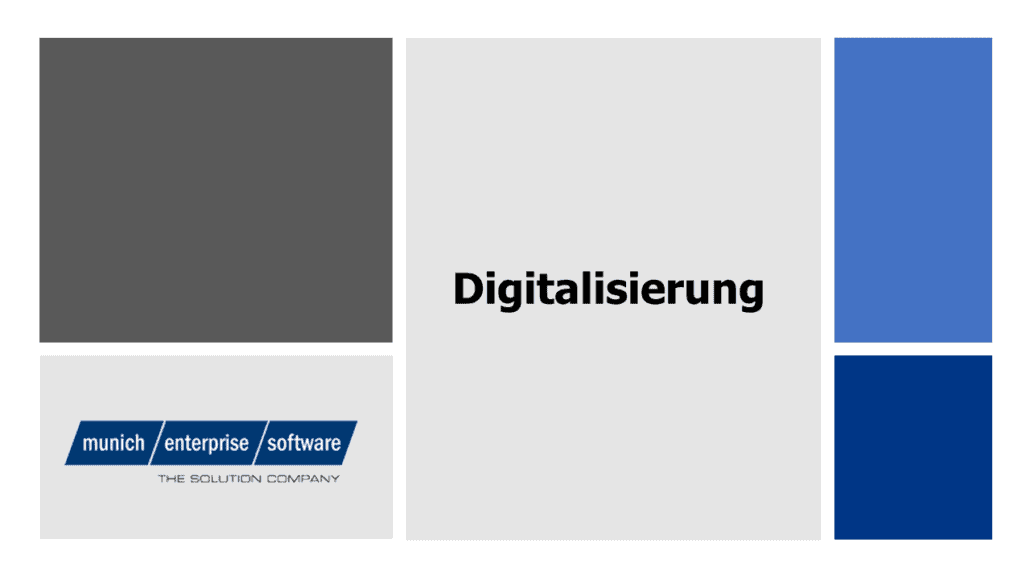
Term digitization
Digital is the opposite of analog. Analog stands for a stepless representation. Digital, on the other hand, means that something is stored or transmitted on the basis of 0 and 1. Digitized data is available for electronic systems.
According to Gabler, the term “digitalization” has several meanings. “He may mean the digital transformation and presentation or execution of information and communication or the digital modification of instruments, devices and vehicles, as well as the digital revolution, which is also known as the third revolution, or the digital revolution. Turn. In the latter context, not least “information age” and “computerization” are mentioned.” In the context of digitalization, digital systems are connecting with each other as well as increasingly people with technology. The process of change based on the use of digital technologies is also referred to as “digital transformation” or “digital transformation”. The business models of modern companies adapt to this development.
The implementation of a digital concept creates new structures that are used to optimize business processes. Digital transformation often leads to the development of new products or business ideas.
The importance of digital change for business and business
Digital transformation is everywhere. Small, medium-sized and large companies cannot escape this change. Nevertheless, many companies are still only at the beginning of this change. Those who hesitate here will lose time and resources for the core business in the long run. What is certain is that no company that wants to survive and grow in the long term will miss the digital transformation. External and internal corporate communication is increasingly digital today. The trend is clear and captures more and more processes. This also includes customer and supplier relationships. Therefore, an efficient digital infrastructure is a prerequisite for economic success. Digitizing business processes is a must in a globalized world with new market developments.
Review – When did digitization begin in Germany?
Digitization in Germany began in the 1970s with the introduction of computers in companies and institutions. At that time, the first steps were taken to automate manual processes and process data electronically.
In the 1980s, digitization continued to gain momentum, especially with the spread of personal computers (PCs). Companies began to use PCs in their offices and use computer-based software solutions.
In the 1990s, the Internet gained prominence, providing access to global sources of information, as well as communication and trade via the World Wide Web.
From the 2000s onwards, digitization in Germany continued to intensify. Broadband internet became widespread, mobile phones evolved into smartphones, and new digital technologies and business models emerged.
Digital transformation has gained momentum in recent years, especially with the advent of big data, cloud computing, artificial intelligence and the Internet of Things (IoT). Companies are increasingly turning to digital solutions to optimize their processes, open up new business opportunities and respond to the changing demands of the digital age.
It is important to note that digitization is a continuous process and evolves over time. Therefore, the exact date or time of the start of digitization in Germany cannot be clearly determined, as it extends over a longer period of time and has been influenced by various technological developments and initiatives.
Why should business processes be digitized?
Digital business processes are characterized by the highest level of transparency, speed and effectiveness. A digitally organized business process has many advantages:
- The parties have access to all necessary information at all times
- Responding quickly and agilely to changes
- Automated business processes increase overall quality
- Customer requests are implemented quickly and uncomplicatedly
Digitizing business processes is a constant process that doesn’t stop with the initial implementation. In order to meet new challenges and to survive on the market, new optimization potentials must be discovered and realized in a timely manner. The first priority here is the automation of routine processes.
How does digital change work?
The digital transformation of business processes is done step by step. Above all, it is important that the new digital infrastructure adapts to the individual circumstances of the respective company. In order to benefit from the benefits of digitally organised business processes, we need first and foremost a willingness to change and learn. What are the three prerequisites for a company’s digital future?
- Courage to innovate. Old structures need to be broken up, rethought and changed
- Digital skills. Employees in the company acquire new knowledge and competences with digitalization
- The willingness to become part of a digital culture. Transparency and fast processes are changing the world of work
When these three points are met, the course has actually already been set. It is particularly important that changes in business processes due to digital systems take time. The digital transformation in a company does not happen overnight. Most of the changes are consistently rated as positive by the employees. Technology primarily eliminates the need for time-consuming routine activities – and thus awakens resources for creative processes. In today’s world of work, the training of digital skills is even required by most employees.
What role does e-mail play?
The a-sign is an icon of the 21st century – a symbol that everyone knows. It stands for e-mail, sometimes also for the Internet itself – and thus for digital communication. It enables real-time communication. Even the largest amounts of data, large documents and files of all kinds can be reached from the sender to the receiver within seconds. E-mails also play a decisive role in B2B communication. This allows processes to be carried out automatically by mail:
- Confirmation
- Order
- bill
- Reminder
- Payment avis
E-mail optimizes all processes that contain a communication element. This significantly speeds up the flow of various business processes. In this way, the digital change is already making a financial impact in a short period of time:
- Printing and shipping costs are significantly reduced
- The customer receives his invoice immediately, the period until receipt of payment is significantly shortened
- The entire processing of the processes and communication takes place quickly and uncomplicatedly
Today, e-mails are indispensable for fast and uncomplicated communication. The electronic mail is location- and device-independent. Messages and attached files can be accessed at any time. E-mail is therefore a fundamental building block of digital change.



















